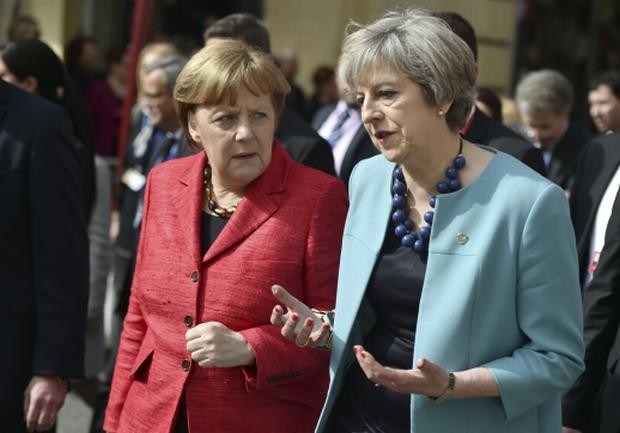Women’s gains in politics stagnating, new data shows

British Prime Minister Theresa May (center right) speaks with German Chancellor Angela Merkel (center left) as they walk during an event at an EU summit in Valletta, Malta, on Friday, Feb. 3, 2017. European Union heads of state and government gathered Friday for a one-day summit to discuss migration and the future of the EU. AP
UNITED NATIONS, United States — The number of women wielding political power worldwide has stagnated, new data released Wednesday at the United Nations showed in findings that UN Women called troubling.
There were 17 women heads of state or government in 2016, down from 19 in 2015, while women won 22.3 of seats in all elections last year, compared with 25 percent the previous year.
“There is overall stagnation”, UN Women executive director Phumzile Mlambo-Ngcuka told a news conference.
“These are results that are warning bells and there is the persistent missing voice of women where it matters most.”
READ: Don’t send women workers abroad—Tesda head | Duterte hails women as ‘heroes’
Article continues after this advertisementMlambo-Ngucka said the new data was “quite troubling” and the failure to achieve progress in women’s representation in politics raised questions about democracy.
Article continues after this advertisementThe global average of women in national parliaments increased only slightly from 22.6 percent in 2015 to 23.3 percent last year, according to the data from the Inter-Parliamentary Union (IPU) and UN Women.
“Power is still firmly in men’s hands,” said IPU Secretary-General Martin Chungong, who said the failure to achieve progress was due to a lack of political will.
Bulgaria, France, Nicaragua, Sweden and Canada have achieved gender parity in government, with women holding at least half of all ministerial posts.
Most women ministers in the world hold the environment, energy or natural resources portfolios, followed closely by social affairs.
Finland and Cape Verde, which have had high rates of women ministers, dropped significantly.
Women are also losing ground in Africa, but there were big gains for women in elections in Pacific island-states.
The data was released during the Commission on the Status of Women, a two-week UN conference aimed at taking stock of progress toward gender equality. CBB